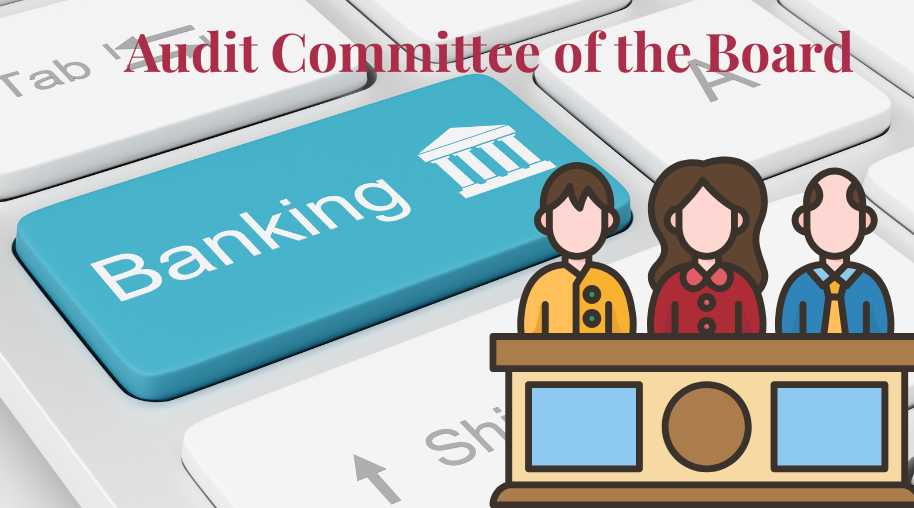ACB Full Form - Audit Committee of the Board
by Shashi Gaherwar
0 2680
Audit Committee of the Board: Its Role, Responsibilities, and Importance in Corporate Governance
In the realm of corporate governance, the Audit Committee of the Board plays a crucial role in ensuring transparency, accountability, and the integrity of financial reporting. Composed of independent directors, the audit committee is responsible for overseeing the company’s financial reporting process, ensuring the effectiveness of internal controls, and managing risks. This article explores the role and responsibilities of the audit committee, its significance in corporate governance, and the impact it has on enhancing a company’s operational and financial health.

This article provides a comprehensive overview of the Audit Committee of the Board, its functions, and its critical role in fostering trust and reliability in corporate financial practices.
What is the Audit Committee of the Board?
The Audit Committee of the Board is a subcommittee of the board of directors in an organization. It is typically composed of non-executive or independent directors to ensure impartiality. The committee’s primary responsibility is to oversee the financial reporting process, monitor the effectiveness of internal controls, and ensure the accuracy of financial statements. By providing a structured and independent review, the audit committee helps to safeguard the interests of shareholders and other stakeholders.
Key Responsibilities of the Audit Committee
The audit committee has several critical responsibilities, which can vary slightly depending on the organization and its regulatory environment. However, the core responsibilities remain consistent across most organizations. These include:
- Financial Reporting Oversight: One of the audit committee’s most important tasks is to oversee the company’s financial reporting process. The committee ensures that the financial statements are prepared in accordance with the applicable accounting standards, providing an accurate representation of the company’s financial health. The audit committee reviews financial reports before they are presented to the board for approval.
- Internal Control and Risk Management: The audit committee monitors the company’s internal control systems and assesses their effectiveness in managing financial risks and preventing fraud. Effective internal controls are essential to maintaining the accuracy and reliability of financial information. The audit committee reviews the company’s risk management policies and ensures that potential financial, operational, and compliance risks are appropriately mitigated.
- External Audit Oversight: The audit committee works closely with the external auditors, ensuring their independence and objectivity in reviewing the company’s financial statements. The committee meets with the auditors to discuss the scope of the audit, any issues identified during the audit process, and the auditors’ findings. The audit committee is responsible for recommending the appointment or removal of the external auditors to the board of directors.
- Internal Audit Function: In addition to external auditors, the audit committee also oversees the internal audit function within the organization. The internal audit function reviews the company’s operations, internal controls, and compliance with regulations. The audit committee ensures that the internal audit function is independent and that its recommendations are addressed by the management.
- Compliance and Legal Oversight: The audit committee ensures that the company adheres to all relevant laws, regulations, and corporate governance codes. It works to ensure compliance with financial reporting regulations such as the Sarbanes-Oxley Act in the U.S. or the Companies Act in India. It also ensures that the company has adequate procedures in place to detect and address any legal or regulatory violations.
- Whistleblower Programs and Fraud Detection: Many audit committees are responsible for overseeing whistleblower programs that allow employees to report suspected unethical behavior or financial wrongdoing. This helps to ensure that any fraudulent activities or financial mismanagement are identified and addressed promptly. The audit committee plays a crucial role in investigating any such allegations and ensuring that corrective measures are taken.
Composition and Independence of the Audit Committee
To maintain the integrity and objectivity of the audit committee, it is typically composed of independent directors who do not have any financial interests in the company’s operations. Independence is a key factor in ensuring that the committee can act without conflicts of interest, making unbiased decisions in the best interests of the shareholders and stakeholders.
Key characteristics of an effective audit committee include:
- Independence: Members of the audit committee should be independent of the management and should not have any financial or personal interests in the company’s operations.
- Financial Expertise: At least one member of the audit committee should have financial expertise, often referred to as the “financial expert.†This person is typically knowledgeable in accounting, finance, or auditing practices and can provide valuable insights into the company’s financial reporting processes.
- Regular Meetings: The audit committee should meet regularly to review financial statements, discuss internal controls, assess the audit process, and address any concerns raised by management, internal auditors, or external auditors.
- Clear Reporting Structure: The audit committee should have a direct reporting line to the board of directors, ensuring transparency and accountability in its actions.
Importance of the Audit ліні Committee in Corporate Governance
The audit committee plays a vital role in the broader framework of corporate governance. Good corporate governance ensures that a company operates in a transparent, ethical, and responsible manner, safeguarding the interests of shareholders, employees, and other stakeholders. The audit committee contributes to strong corporate governance in several ways:
- Ensuring Transparency and Accountability: By overseeing the financial reporting process and the audit function, the audit committee helps ensure that the company’s financial statements are accurate, reliable, and transparent. This promotes accountability within the organization and strengthens trust among shareholders, investors, and regulators.
- Enhancing Investor Confidence: A well-functioning audit committee is essential for maintaining investor confidence. Investors rely on accurate financial reports and sound internal controls to make informed decisions. The audit committee’s oversight provides reassurance that the company’s financial statements reflect the true state of affairs and that risks are being properly managed.
- Strengthening Internal Controls and Risk Management: Effective internal controls are vital to preventing fraud, detecting financial mismanagement, and mitigating risks. The audit committee’s oversight helps identify weaknesses in internal controls and ensures that management addresses them promptly. This contributes to the long-term stability and profitability of the company.
- Promoting Compliance and Ethical Conduct: By monitoring compliance with legal and regulatory requirements, the audit committee ensures that the company adheres to the highest ethical standards. This helps the company avoid potential legal penalties, regulatory fines, and reputational damage.
- Detecting Fraud and Mismanagement: Through its oversight of internal controls and audit functions, the audit committee plays a critical role in detecting financial fraud and mismanagement. It provides a safeguard against financial wrongdoing and helps ensure that the company operates in a lawful and ethical manner.
Challenges Faced by the Audit Committee
Despite its crucial role, the audit committee faces several challenges in carrying out its duties effectively:
- Complexity of Financial Reporting: As financial reporting standards become more complex, the audit committee may face challenges in understanding and evaluating financial statements. Ongoing education and training are necessary for audit committee members to stay abreast of developments in financial reporting and auditing practices.
- Balancing Independence and Cooperation: While the audit committee must maintain independence from management, it must also cooperate closely with management, auditors, and other stakeholders to ensure that audit and internal control functions are effective. Striking the right balance can be challenging.
- Cybersecurity and Technology Risks: As technology continues to evolve, the audit committee must be vigilant about new risks related to cybersecurity and data privacy. Ensuring that the company’s IT systems are secure, and that financial data is protected from breaches is increasingly important in today’s digital environment.
The Audit Committee of the Board plays a critical role in ensuring the integrity, transparency, and accountability of an organization’s financial reporting processes. By overseeing the audit process, assessing internal controls, and managing risks, the audit committee helps safeguard the interests of shareholders and other stakeholders. A strong and effective audit committee contributes to good corporate governance, strengthens investor confidence, and fosters long-term organizational success.
Further Learning Resources
If you’re passionate about building a successful blogging website, check out this helpful guide at Coding Tag – How to Start a Successful Blog. It offers practical steps and expert tips to kickstart your blogging journey!
For dedicated UPSC exam preparation, we highly recommend visiting www.iasmania.com. It offers well-structured resources, current affairs, and subject-wise notes tailored specifically for aspirants. Start your journey today!

Share:









Comments
Waiting for your comments